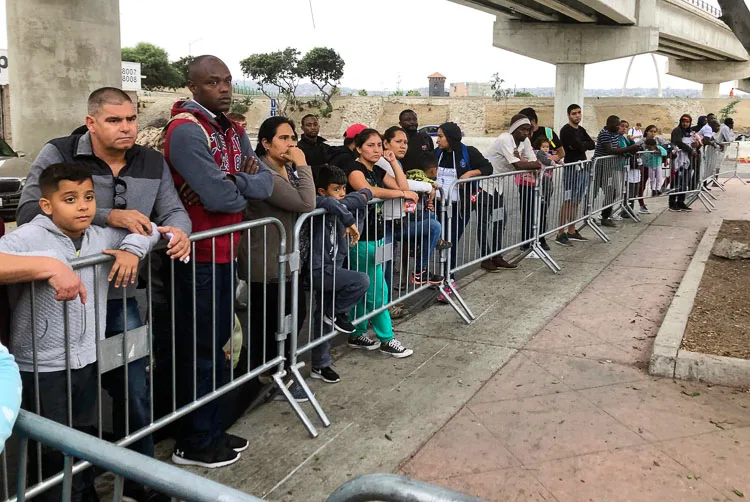Asylum is one of the most crucial forms of protection available to individuals fleeing violence, persecution, and conflict. For many refugees and migrants, it represents a lifeline—offering the chance to rebuild their lives in a safe and secure environment. Understanding the asylum process, the eligibility criteria, and the rights of asylum seekers is essential for anyone looking to navigate the complexities of migration.
What is Asylum?
Asylum is the protection granted by a country to individuals who have fled their home country due to a well-founded fear of persecution. This persecution could be based on factors such as race, religion, nationality, political opinion, or membership in a particular social group. Unlike other forms of migration, asylum is specifically designed for those who are unable to return to their country of origin because of the threat they face.
The right to seek asylum is enshrined in international law, particularly in the 1951 Refugee Convention and its 1967 Protocol, which were adopted by the United Nations. These agreements establish the legal framework for protecting refugees and asylum seekers around the world.
The Asylum Process
The asylum process can be lengthy and complex, involving several stages. While the exact procedure varies from country to country, here is a general overview of what asylum seekers can expect:
- Arrival and Application: Asylum seekers must first arrive in a country where they wish to seek protection. Once there, they must submit an asylum application to the relevant authorities. This application includes details about their reasons for fleeing their home country and why they fear persecution.
- Screening and Interview: After submitting their application, asylum seekers undergo a screening process. This may involve an interview where they are asked to provide further details about their experiences and the risks they face. It’s essential to be honest and thorough during this interview, as the decision to grant asylum is often based on the information provided.
- Decision: The authorities will review the asylum application and decide whether the individual qualifies for asylum. If granted, the asylum seeker can remain in the country and may eventually be eligible for permanent residency. If denied, the individual may have the right to appeal the decision or seek alternative forms of protection.
- Appeal Process: If an asylum application is rejected, the applicant may appeal the decision. In some countries, asylum seekers can present new evidence or arguments to support their case. The appeals process can be complicated, and it is often advisable to seek legal assistance during this stage.
Eligibility for Asylum
To be eligible for asylum, applicants must meet specific criteria. They must demonstrate that they have a well-founded fear of persecution based on one of the following grounds:
- Race: Persecution due to an individual’s racial background or ethnicity.
- Religion: Persecution based on religious beliefs or practices.
- Nationality: Persecution based on the individual’s nationality or ethnic group.
- Political Opinion: Persecution due to the individual’s political beliefs or activities.
- Membership in a Particular Social Group: This can include individuals persecuted due to their gender, sexual orientation, or other social factors.
It’s important to note that not all individuals who face hardship or danger are eligible for asylum. For example, individuals fleeing economic hardship or natural disasters do not qualify for asylum unless they can demonstrate that their situation meets one of the above criteria.
Rights of Asylum Seekers
Asylum seekers have certain rights once they apply for protection in a country. These rights vary by nation, but common protections include:
- Right to Stay Temporarily: Asylum seekers are generally allowed to stay in the country while their application is processed.
- Right to Work: In many countries, asylum seekers are permitted to work after a certain period if their application is pending.
- Right to Family Reunification: Asylum seekers may have the right to reunite with family members who are also in need of protection.
- Protection from Deportation: While their asylum application is being reviewed, asylum seekers are typically protected from deportation to their home country, especially if it would place them at risk of persecution.
Challenges Faced by Asylum Seekers
The journey of seeking asylum is often fraught with challenges. Many asylum seekers face long waiting times for decisions, which can lead to uncertainty and anxiety. In some cases, they may be detained or forced to live in precarious conditions while awaiting a decision.
Additionally, the legal and bureaucratic hurdles can be overwhelming. Asylum seekers often face language barriers, lack of access to legal representation, and limited resources. These obstacles can make it difficult to navigate the asylum process and reduce the chances of a successful application.
The Importance of Support and Advocacy
Given the challenges faced by asylum seekers, it is crucial for individuals to have access to support and advocacy. Non-governmental organizations (NGOs), community groups, and legal services play an essential role in helping asylum seekers understand their rights, prepare their applications, and navigate the appeals process.
It is also important for governments to ensure that asylum seekers are treated with dignity and respect. Providing adequate housing, healthcare, and legal support can help asylum seekers rebuild their lives and integrate into their new communities.
Asylum is a fundamental human right, and it is essential that countries uphold their international obligations to protect refugees and asylum seekers. As the number of displaced people continues to rise globally, it is more important than ever for governments, NGOs, and individuals to work together to provide safe and legal pathways for those in need of protection.
For those considering applying for asylum, it is vital to understand the process, know your rights, and seek legal assistance. By doing so, asylum seekers can increase their chances of finding a safe and secure future in a new country, free from the fear of persecution.

